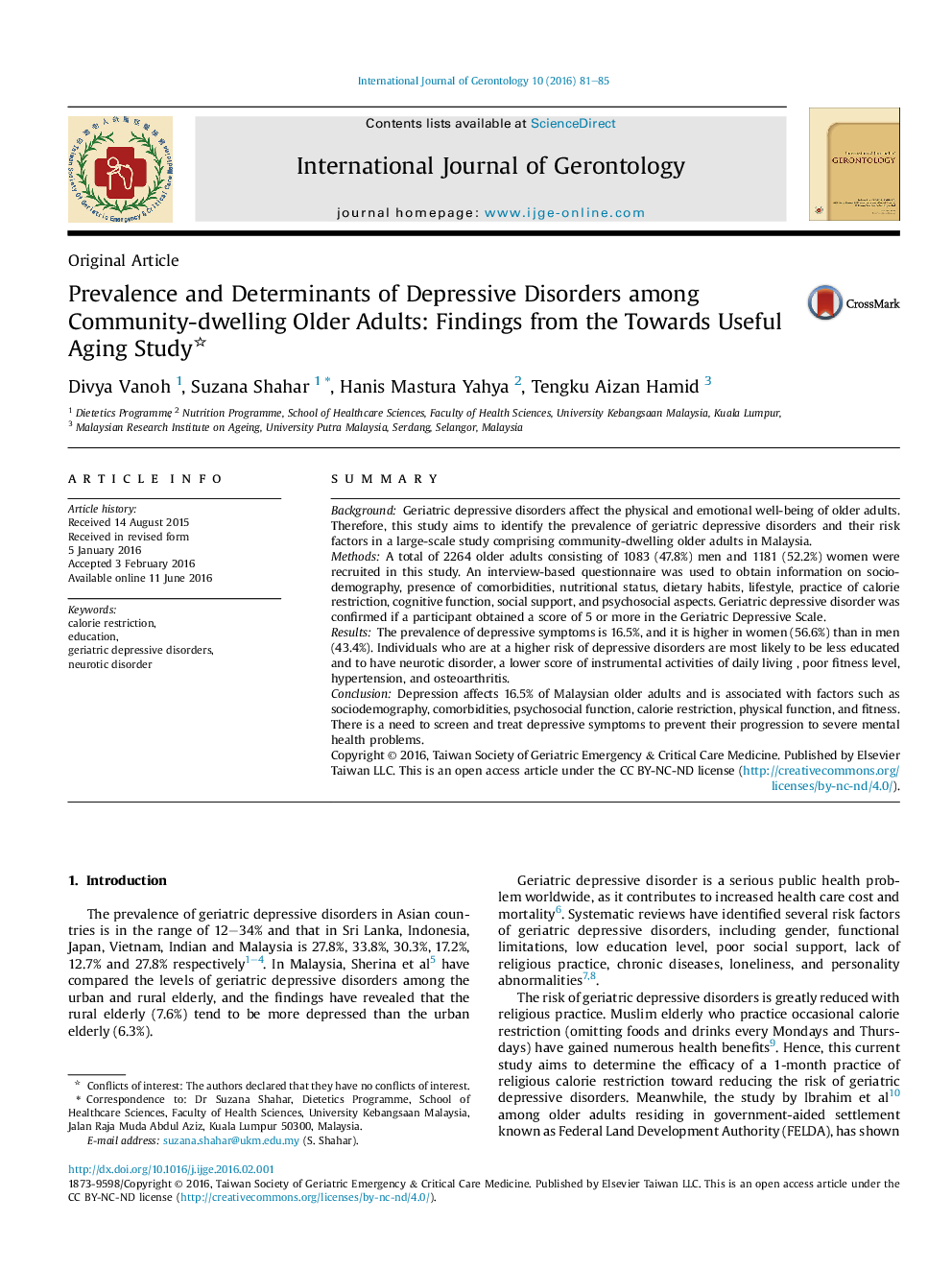| Article ID | Journal | Published Year | Pages | File Type |
|---|---|---|---|---|
| 3325038 | International Journal of Gerontology | 2016 | 5 Pages |
SummaryBackgroundGeriatric depressive disorders affect the physical and emotional well-being of older adults. Therefore, this study aims to identify the prevalence of geriatric depressive disorders and their risk factors in a large-scale study comprising community-dwelling older adults in Malaysia.MethodsA total of 2264 older adults consisting of 1083 (47.8%) men and 1181 (52.2%) women were recruited in this study. An interview-based questionnaire was used to obtain information on sociodemography, presence of comorbidities, nutritional status, dietary habits, lifestyle, practice of calorie restriction, cognitive function, social support, and psychosocial aspects. Geriatric depressive disorder was confirmed if a participant obtained a score of 5 or more in the Geriatric Depressive Scale.ResultsThe prevalence of depressive symptoms is 16.5%, and it is higher in women (56.6%) than in men (43.4%). Individuals who are at a higher risk of depressive disorders are most likely to be less educated and to have neurotic disorder, a lower score of instrumental activities of daily living , poor fitness level, hypertension, and osteoarthritis.ConclusionDepression affects 16.5% of Malaysian older adults and is associated with factors such as sociodemography, comorbidities, psychosocial function, calorie restriction, physical function, and fitness. There is a need to screen and treat depressive symptoms to prevent their progression to severe mental health problems.
